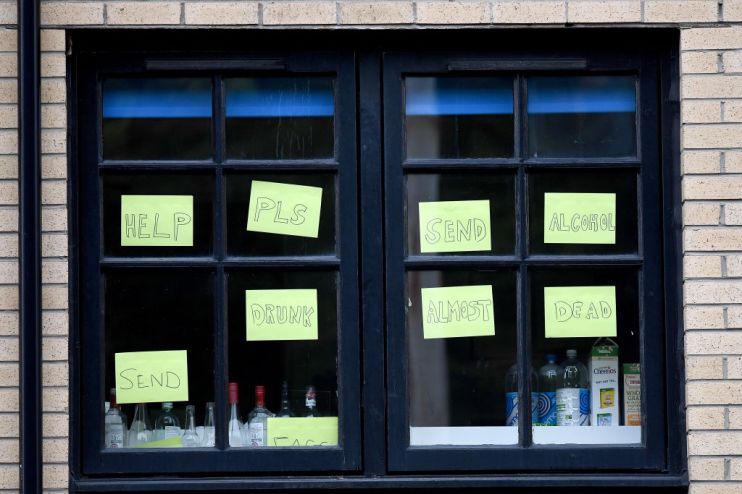Measures to suppress Covid-19 are causing untold damage to students and young people

The motto of the Young Money Blog is “don’t get mad — get informed”. But in recent weeks and months, I’ve found it hard not to get mad. As we try to head into an uncertain and bleak winter, emergency laws designed to curb the spread of Covid-19 are fast becoming a moral and economic scandal.
The inhumane treatment now being meted out to university students is the last straw. I’m saying to my readers: enough is enough.
We have now reached a point where students can be imprisoned in their rooms at university and banned from seeing their families. Where our night-time economy and live culture is effectively criminalised for an indefinite period, and thousands of entrepreneurs told their once-thriving business is now “unviable”. Where a million people face unemployment by next year, according to the consultancy Capital Economics, with all the misery and hardship this entails.
Despite his best efforts to balance pragmatism and compassion in his Winter Economy Plan, Rishi Sunak can do little to prevent a wave of redundancies hitting young workers this autumn when the furlough scheme ends. Employers in retail and hospitality disproportionately rely on young, unskilled labour. They just won’t cough up big chunks of these employees’ wages purely so they can come back on a part-time basis to venues that have to be shut by 10pm.
It remains to be seen if the chancellor’s Job Retention bonus, Kickstart Jobs scheme and other financial sticking plasters will stave off a youth unemployment crisis. But I think the damage has already been done.
We now know that 18–25 year olds are the most likely to have lost income, been forced onto social security, furloughed or made redundant. They face years of economic “scarring”, with weaker job prospects and lower, flatter wages. Those in rental arrears could soon be evicted if their landlords don’t show (entirely optional) forbearance. The housing market is now effectively out-of-bounds to all but the wealthiest of first-time buyers. Debt charities and suicide prevention hotlines have reported a sharp rise in young people desperately seeking help.
Of course, older people are struggling too. Those approaching retirement are being thrown on the jobs scrapheap, while dividends and savings rates have been slashed. Isolation, the suspension of non-Covid health treatment, the prospect of never hugging your grandchildren again — what kind of life is this?
The amount of public spending needed just to keep the show on the road is becoming unconscionable. It’s a ticking time bomb that we’re throwing onto the next generation who are already facing the minefield of an aging population, the rise of automation, and more sluggish growth.
We now know this isn’t about the “economy versus lives”. Leadership is about making difficult decisions for the long-term good of the nation. It’s about having the guts to admit that right now, this virus cannot be stopped — nor can the lives of working people in this country.
The vast majority of people — myself included — supported and complied with the first lockdown. But we are now being conditioned to believe that it’s our civic duty to put our lives on hold — and spiral into poverty and loneliness — so that we can eliminate the risks posed by this virus. It’s a grotesque lie.
The flame of anger is in young people, somewhere, but it’s being smothered by conformity, fear and depression. When I appeared on an under-30s edition of Question Time in June, I was shocked at how worn down and scared the audience was. But now, they need to be livid. We are now in a battle to salvage a better future not just for ourselves but for our children and grandchildren. It’s one we literally cannot afford to lose.
So yes, it is time to get mad. Because then we can start to make one thing clear to the powers-that-be: we won’t be ignored any longer.
Main image credit: Getty